Whilst 不 (bù) can be said to be the closest translation to saying no in Chinese, it tends not to be used by itself. An important rule to follow when saying no in Chinese is to add 没 (méi) or 不 (bù) in front of a verb or verb clause. When the verb is 有 (yǒu) then the ‘no’ response is 没有 (méi yǒu), otherwise, 不 (bù) is used.
Just as in other languages, there are several different ways for us to use the word no in Chinese, it’s not just to refuse or disagree. You can also learn how to say yes in Chinese in our article, Try These Different Ways to Say Yes in Chinese.
Below are the various ways, with examples, to use no in Chinese.
1. To Disagree with a Statement or Question
不 / 不是 / 不对 / 不用了
Use these examples to disagree with something or someone’s opinion:
不 (bù) no

不,我不想去。(bù, wǒ bù xiǎng qù) No, I don’t want to go.
不是 (bú shì) no / is not 
他是美国人吗?(tā shì měi guó rén ma?) Is he American?
不是。 他是英国人。(bú shì, tā shì yīng guó rén) No, he’s British.
不对 (bú duì) not right / incorrect
The phrase 对不对 is good to use when checking information or facts, it means ‘am I right or not?’:
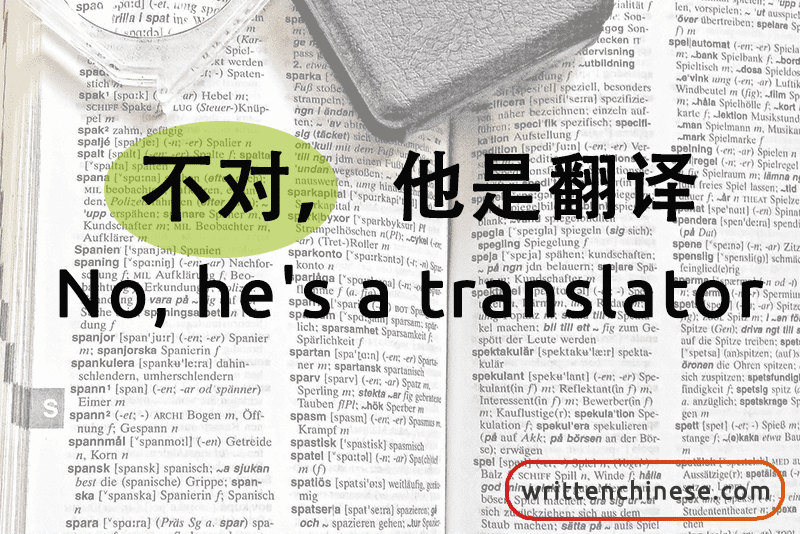
他是老师, 对不对?(tā shì lǎo shī, duì bú duì) She’s a teacher, right?
不对, 他是翻译。(bú duì, tā shì fān yì) No, he’s a translator.
不用了 (bù yòng le) no need
不用了 can be used to refuse something offered to you, such as a bag in a grocery store, or help from a person.
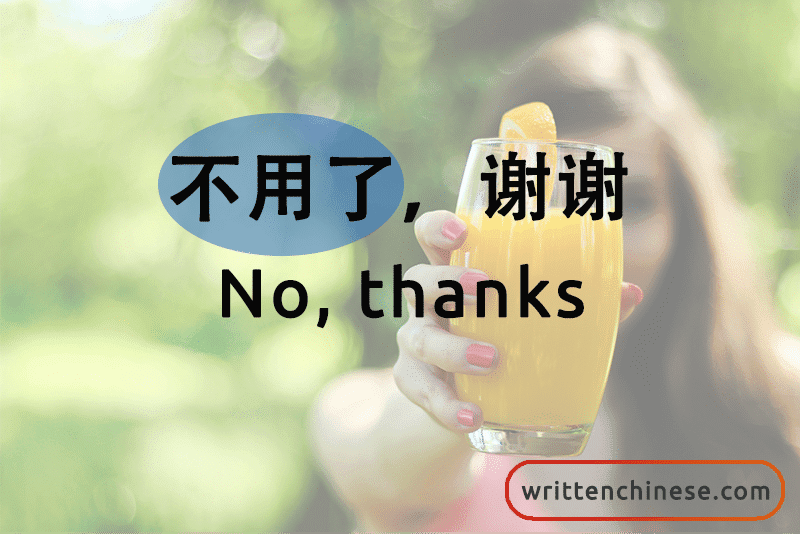
不用了,谢谢。(bù yòng le, xiè xie) No, thanks.
没 (méi) / 没有 (méi yǒu) to not be
没 negates the verb 有 meaning ‘to have’, so in the following examples, 没 is used instead of 不. In some situations, 有 can be removed from the sentence, although using 没有 would still be correct.

你回家了吗? (nǐ huí jiā le ma?) Did you go home?
没有,我还在学校。(méi yǒu, wǒ hái zài xué xiào) No, I am still at school.
家里一个人都没有。(jiā lǐ yī gè rén dōu méi yǒu) There is no one at home.
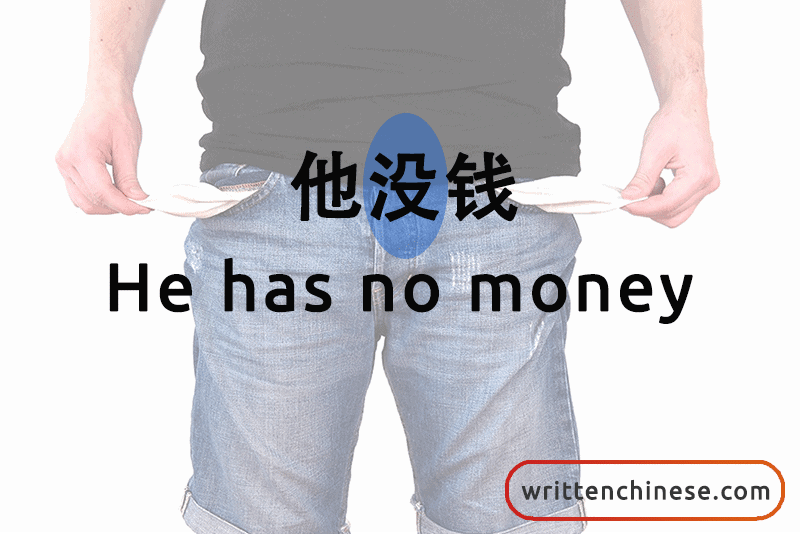
他没钱。(tā méi qián) He has no money.
别 / 不要 / 不可以 / 不行
These examples can simply be used to refuse something when offered it or to emphasise that you don’t want something to happen.
别 (bié) don’t / must not

我要扔了它!(wǒ yào rēng le tā) I will throw it away!
别!(bié) (不要!) No!
别担心。(bié dān xīn) No worries.
不要 (bù yào) (bú yào) to not want
你要不要喝咖啡吗?(nǐ yào bù yào hē kā fēi ma?) Do you want some coffee?
不要, 谢谢。(bù yào, xiè xie) No, thanks.

我要走了。(wǒ yào zǒu le) I have to go.
不要!(bù yào) 别走!No!
不可以 (bù kě yǐ) cannot
不可以 and 不能 can be used to deny or refuse a request:
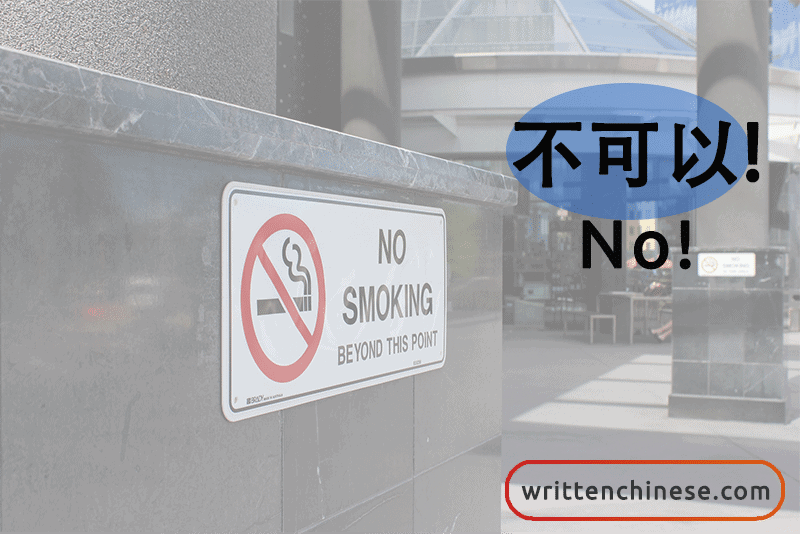
我可不可以抽烟吗?(wǒ kě bù kě yǐ chōu yān ma?) Can I smoke?
不可以。(bù kě yǐ) No.
无 (wú) No

无人知晓。(wú rén zhī xiǎo) No one knows.
2. To Express Shock or Surprise
不可能 / 不是吧 / 是吗 / 真的(吗)
Imagine someone told you a good piece of gossip. You might reply with ‘NO!’
The following examples put emphasis on the ‘no’ response.
不可能 (bù kě néng) no / impossible
不可能 (bù kě néng) is a way of saying no with emphasis.
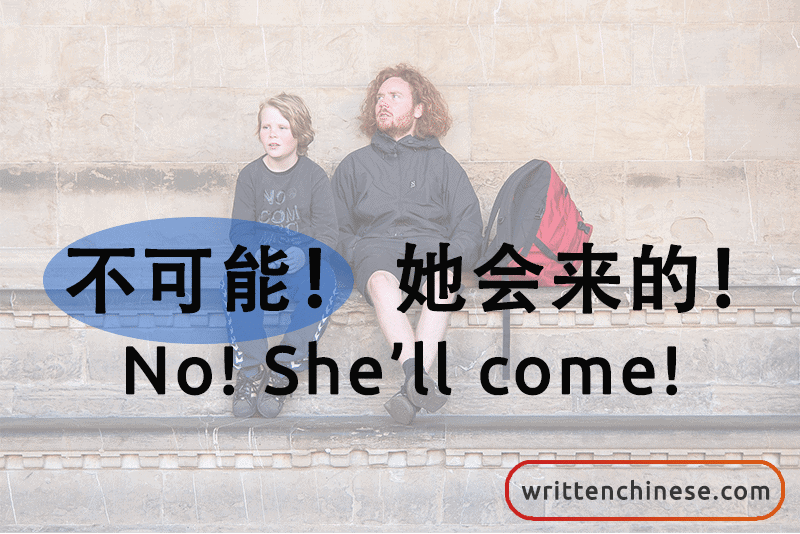
别等了,她不会来了。(bié děng le, tā bù huì lái le) Don‘t wait anymore, she’s not coming.
不可能! 她会来的!(bù kě néng! tā huì lái de) No! She will!
不是吧!(bú shì ba) No way
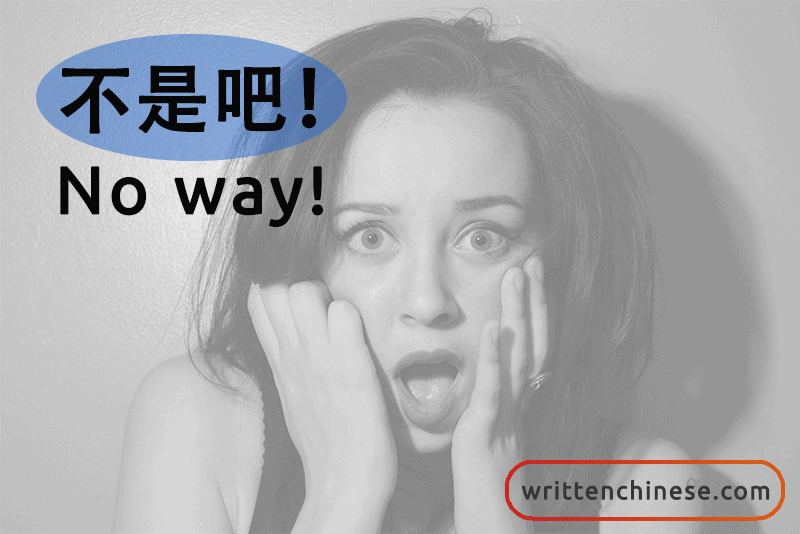
他输了!(tā shū le) He lost!
不是吧!(bú shì ba) No way!
3. To Disallow and Prohibit
禁止… / 不准…
禁止 (jìn zhǐ) to prohibit
This example is mainly found in written Chinese and can be seen on signs around China to warn people not to do certain activities.

禁止入内 (jìn zhǐ rù nèi) No entrance
不准 (bù zhǔn) not to allow
不准停车 (bù zhǔn tíng chē) No parking!
Do you have any other examples of how to say no in Chinese? Share your examples with us below!
